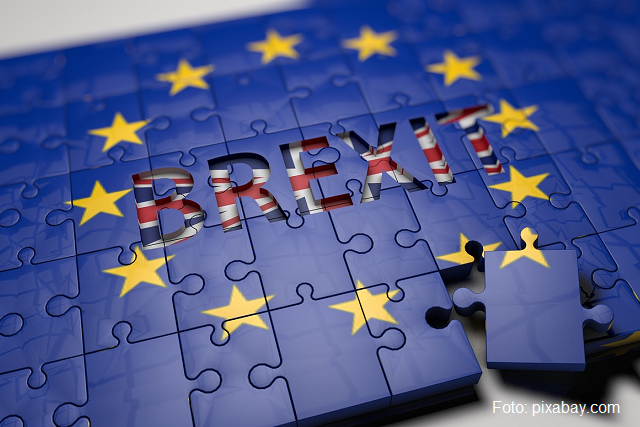The new EU-UK relationship
Just a few days before the transition period expired, the UK and the EU reached a last-minute agreement

Corina Cristea, 08.01.2021, 14:00
Just a few days before the transition period expired, the United Kingdom – which chose to leave the community bloc in the 2016 referendum, and the European Union – which was consequently forced to carry on with 27 members — managed to reach a last-minute agreement on post-Brexit relations. The EU and the UK signed the Trade and Cooperation Agreement on security procedures for the exchange and protection of confidential information as well as the Agreement between the European Atomic Energy Community (Euratom) and the UK on the safe and peaceful uses of nuclear energy. Shortly after, the UK, which left the EU on January 31, 2020, definitively abandoned the single market and the EU Customs Union on December 31, becoming the first country to leave this structure after almost half a century of EU membership. Negotiations to finalize the last documents have been difficult, often giving the impression that it is almost impossible to get out of the deadlocks which the two sides had reached following discussions during which each party wanted to better protect its interests.
The main points of divergence that prevented the two sides from reaching a trade agreement for many months were: the EU competition rules, the EU seeking to make sure that there would be no unfair competition from British companies, the dispute settlement and the access of European fishermen to the British waters. If the agreement had not been signed, things would have been extremely volatile, bringing further unpredictability to an equation with many unknowns that could only be solved with the passage of time. Had the two sides failed to reach an agreement, analysts say, the trade exchanges between the EU and the UK would have been governed, as of January 1, by World Trade Organization rules, which would have meant the introduction of customs duties and quotas, with the risk of a new shock for the economies already weakened by the health crisis caused by COVID-19.
The signing of this agreement is extremely important for the cohesion of the western world, Iulian Fota, the general director of the Romanian Diplomatic Institute told Radio Romania. “After the British vote became obvious to everyone and Brexit became irreversible, I believe that the United Kingdom and the rest of the EU focused on saving the relationship between themselves under Brexit conditions, and this agreement shows that the elements that bind us continue to be more important than those that separate us, Iulia Fota said.
Iulian Fota adeed that: “The fact that the two important actors, the United Kingdom and the EU, have reached an agreement, shows us that we can still rely on a high level of cohesion within the Western world. Why is this important? We are in full globalization process and competition is no longer between states as international actors, but rather between spaces of civilization. When it comes to the EU, the United States, NATO, Great Britain, we all come under this very important umbrella of the Western civilization. Therefore, from this perspective, external observers focused on checking if the West was still functioning well. So, the good news is that the UK and the EU, despite Brexit and despite differences, some of them quite important and even tense, have found a possibility to continue to save the bilateral relation, to put it in a new format, including a legal format. A format that will not work perfectly from the very beginning. In time, we’ll see how well the two sides negotiated, but, overall, the message that the British people and the rest of the Europeans are conveying is that Brexit does not mean that the UK is leaving Europe. The EU is one thing, Europe is another thing, and the UK remains in Europe through this agreement. The message is very clear: this is not an agreement to separate us, this is an agreement that will keep us in a close relationship, in a different format. Within the West, we can overcome our differences generated by tradition, by domestic politics and by many other aspects.”
The United Kingdom has officially left the European single market and the EU Customs Union, but the trade agreement stipulates that there will be no tariffs on the movement between the two sides of goods originating in the European Union and the United Kingdom. However, the Erasmus Program will no longer apply. Under this program, British and European students could study at universities on the mainland or in the UK. As regards visas, Romanians, for instance, will be able to enter and stay in Great Britain without a visa, for a period of up to 6 months in a year. Many are now wondering how relationships will develop in the years to come.
Promoted by its supporters as the dawn of a newly independent “global United Kingdom”, Brexit has weakened the connections between England, Wales, Scotland and Northern Ireland, an economy worth 3 trillion dollars — according to Reuters. For its supporters, Brexit is a way out of a project doomed to failure, dominated by Germany, a project that has been lagging far behind the worlds two great powers, the United States and China. Brexit opponents say it is a madness that will weaken the West, Reuters adds, that will shatter everything that has been left of the UK’s global influence, that will undermine its economy and will eventually turn the kingdom into a series of less cosmopolitan islands. (tr. L. Simion)






























